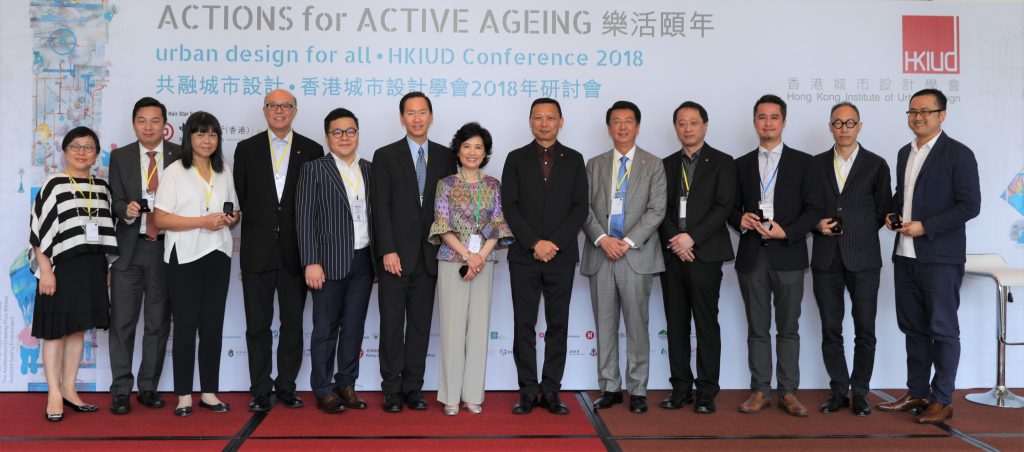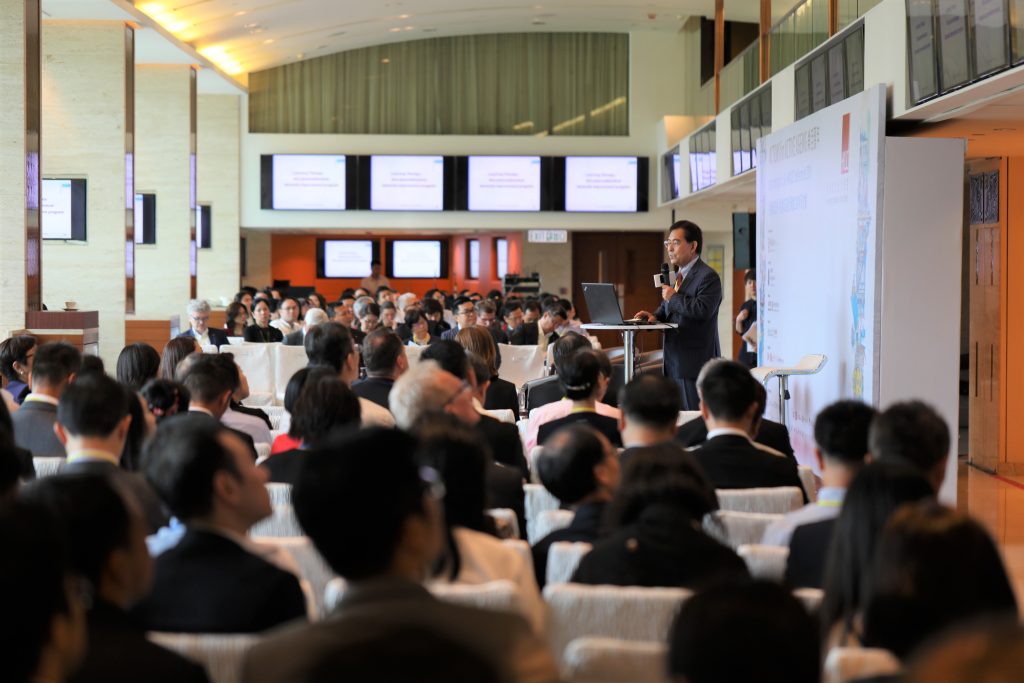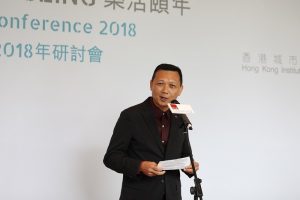On 22 June 2018, the Hong Kong Institute of Urban Design (HKIUD) held the HKIUD Conference 2018 to discuss Hong Kong’s ageing population problem and arrive at new solutions. The event was held at the Happy Valley Racecourse Hong Kong Jockey Club, and was also livestreamed on the Internet for the public. We are honoured to be supported by sponsors including Bank of China (Hong Kong) Private Banking and Hong Kong Jockey Club, among others.
Government statistics show that the proportion of Hong Kong’s population aged 65 and above is set to double to 31% by 2036. With a line-up of world-class speakers in attendance, the conference explored the physical and social aspects of how Hong Kong can be more inclusive and improved to strengthen cultural ties in the community.
The key purpose of the conference was, through insightful presentations and round table discussions, to arrive at a set of new urban design guidelines that can be tangibly applied to current projects in Hong Kong. Hon. Bernard Chan, GBS, JP, Convenor of the Non-official Members of the Executive Council, HKSAR Government; and Dr Hon. Lam Ching-choi, BBS, JP, Chairman, Hong Kong Elderly Commission, HKSAR Government, presented their vision for how Hong Kong can solve the ageing population issue.
Open round table discussions were also held to propose tangible solutions that serve the ageing population in the form of urban design guidelines. The discussion includes international speakers as well as local stakeholders like Mr Marco Wu, GBS, SBS, Chairman, Hong Kong Housing Society; Ms Winnie Ho, JP, Deputy Director of Architectural Services, HKSAR Government; and Mr Timothy Ma, JP, Non-Executive Director, Urban Renewal Authority.

Prof. Stephen Tang, BBS, President of the Hong Kong Institute of Urban Design
Prof. Stephen Tang, BBS, President of the Hong Kong Institute of Urban Design said: “In Hong Kong, ‘Caring for the Elderly’ and ‘Active Ageing’ have recently risen to the forefront of our government’s policy agenda. As representatives of the city’s urban design industry, we at HKIUD see it as our duty to educate people about what we need to improve our city’s liveability for the elderly and encourage informed discussion from an urban design perspective. We need to set a higher standard.”
Hon. Bernard Chan, GBS, JP, Convenor of the Non-official Members of the Executive Council, HKSAR Government said: “The Hong Kong government is committed to tackling the long-term challenges of an ageing population. In her first policy address last year, chief executive Carrie Lam specifically mentioned the need to explore new options in care delivery and home and community care services. The government is also determined to play a leading role in encouraging new ideas to enable active ageing in terms of lifelong learning and volunteerism, innovation and technology, building design and urban planning.”
Dr Hon. Lam Ching-choi, BBS, JP, Chairman, Hong Kong Elderly Commission, HKSAR Government said: “In response to the ageing population in Hong Kong, the whole city should be built to promote better health and well-being to cater for people with various degree of mobility. Policy makers steers the urban designers to build for health and connectivity through regulations and incentives, and the urban designers can bring forth positive and healthy impact to Hong Kong environment”
The next morning, HKIUD will hold a networking breakfast where industry leaders and policymakers – including the Urban Renewal Authority, Architectural Services Department and Elderly Commission of the HKSAR Government – will consolidate key takeaways of the Conference and examine the ongoing Yau Mong District Study with new conference-generated perspectives.
As for the official guidelines, HKIUD has pledged to formulate and publish the new urban design guidelines. Print and digital versions will be made available.












